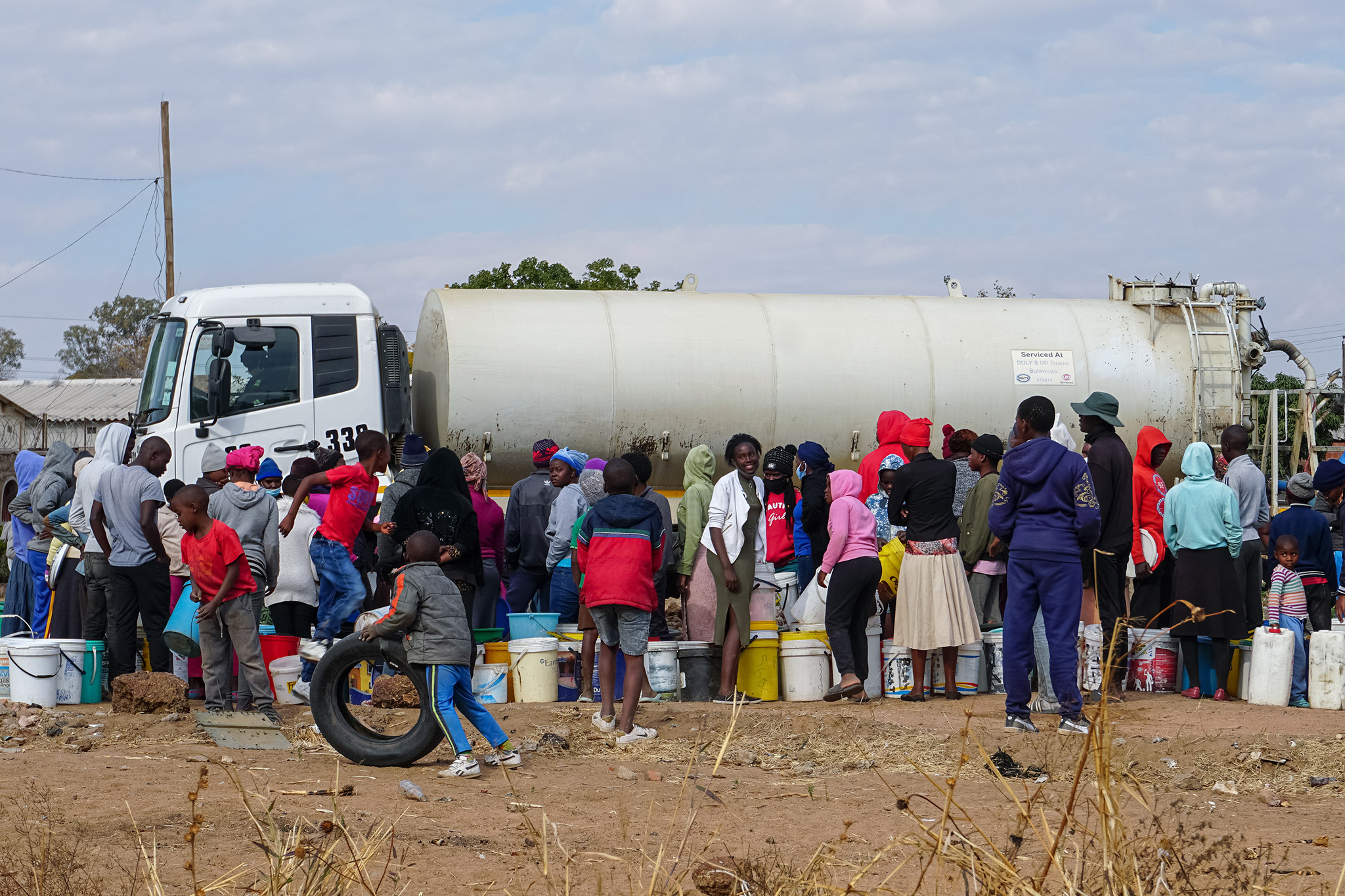ZIMSPHERE
BULAWAYO – The city's residents may face an extended water shedding period from the current 120 hours to 140 hours per week due to dwindling water levels in major supply dams, according to Sikhumbuzo Ncube, Bulawayo's director of engineering services.

Image: Fortune Moyo/Global Press Journal
Ncube made the announcement during a tour of the city's water projects by Margret Verwijk, the Netherlands Ambassador to Zimbabwe. The tour included visits to the city’s Revenue Hall and four water kiosks installed to improve access to water.
The water kiosks, located in Magwegwe (two), Cowdray Park, and Nkulumane, are managed by local communities who also bear the costs of repairing any damaged infrastructure.
The city is currently implementing a 120-hour water shedding period to conserve water, with Ncube warning that the situation remains critical. "Our water levels in the city dams are at 41 percent yet we are approaching the end of the rainy season," he said.
He added that the 120-hour weekly water shedding period might be sustained until December, and could increase to 140 hours by June, depending on the water situation in the city's dams. For now, residents will continue to receive water twice a week.
"By June we might even need to review the water shedding programme depending on the water situation in our dams. We might need to increase to a 140 hour-weekly water shedding period."
Verwijk praised the community involvement in protecting water infrastructure and noted that her country, known for its expertise in water resource management, has been supporting water management efforts in Bulawayo, Mutare, and Harare.
She urged residents to pay their bills, emphasizing that "clean potable water is very valuable."
The ambassador's visit and comments come as Bulawayo, Zimbabwe’s second largest city, grapples with a severe water crisis.



















0 Comments